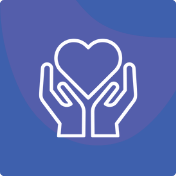Sports Non-Profits

Personal Connection
- Do you love sports?
- Do you want to work in a career that will allow you to help people?
- Do you want to give back to your community?
- Is there a sports non-profit that you’ve always admired and want to work for someday?

Other Connections





STEM Connection
It’s all about the data:
Non-profits can use advances in medicine and medical engineering to help the community:
Mobile app development gives non-profits a new way to connect:
Social media allows teams, athletes, and leagues to spread the message:
Journeys to Working in Sports Non-Profits
Ben had known ever since he was in high school that he wanted to work in social justice and help kids. He was a talented soccer player and was able to go to college thanks to his skills. He eventually received a master’s degree in educational leadership, which helped him tailor his future non-profit towards children and giving them access to not only sports, but better education. Ben decided that his future wasn’t teaching in a classroom. It was making an impact out there in the world.
This is when he began his own non-profit, called Soccer Without Borders. The first event was a soccer camp for refugees in Oakland, California. It was so popular that Soccer Without Borders continued to grow and became first a community staple and, later, a global organization. Through soccer, Ben and his team are able to give kids a chance to learn not just a sport, but how to communicate with a team, to participate in something both fun and challenging, and to build a supportive community that’s focused on giving kids the best chance at success.
Learn more about how Ben started Soccer Without Borders.
Read about how one woman transformed Special Olympics Texas:
Janet Holliday is responsible for the major growth of Special Olympics Texas, a branch of the Special Olympics organization that provides sports training, activities, and competitions for adults and children with physical and intellectual disabilities. She originally got her start in the non-profit world when one of her teachers encouraged all students to get involved in the community. She volunteered at a Special Olympics race where she was responsible for providing encouragement and congratulations at the finish line and has been passionate about public service ever since.
Because of her passion for non-profit work and community service, she focused her academics on psychology, sociology, and social work. After graduation, she worked at Special Olympics and was responsible for helping grow the organization from a small and local non-profit to a prominent international organization that has programs and competitions around the world. Nowadays, Special Olympics is the world’s largest sports organization for people with disabilities.
Janet recommends that others interested in working with people who have disabilities make sure they are coming from the right place and are treating people with “respect and dignity and building those relationships.”
Read more about Janet’s career path and what she has learned in her role here.